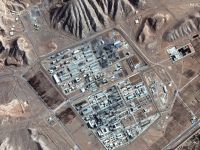Former US president Jimmy Carter, renowned for orchestrating the successful 1978 Camp David talks that led to peace between Israel and Egypt, offered both advice and admonition to Israelis and Palestinians in an essay published Sunday in the New York Times.
Carter's suggests how current peace talks could be advanced, and includes in his piece both praise for President Bill Clinton and some gentle chiding for moves that may have compromised Arab trust in Clinton's neutrality.
On the much-disputed status of Jerusalem, Carter says US, Palestinian and Israeli leaders should do today what he did in 1978 with then Egyptian President Anwar Sadat and Israeli Prime Minister Menachem Begin: sidestep the issue of sovereignty.
"This is still the only basic approach that can succeed concerning Jerusalem: to negotiate practical agreements on unlimited access to and control of the holy places and a joint administration of the city's more mundane affairs," Carter writes.
He describes a paragraph initially included in the 1978 accord but later removed that had provided for a Jerusalem municipal council comprised of Muslim, Jewish and Christian representatives.
The paragraph guaranteed free access for all, to every part of Jerusalem; acknowledged the city to be holy to Islam, Judaism and Christianity; and specified that holy places would be controlled by their own religious representatives.
The paragraph was removed from the text at the last minute for fear that, at the time, it could have rendered the overall agreement unacceptable to the Knesset, Israel's parliament.
But Carter notes that, now, though 15 days of intensive talks between Arafat and Barak at Camp David, outside Washington, broke down on July 25th over the issue of Jerusalem's status, a strong majority of both Israelis and Palestinians seem to want peace.
In a mild critique of some recent actions by Clinton, Carter stresses the need for any mediator to maintain "at least the semblance of neutrality." After the breakdown of recent talks on July 25th, Clinton praised Barak for his flexibility and said Arafat's rigidity was to blame for a lack of progress.
A few days later, he suggested the United States might review relocating its Tel Aviv embassy in Jerusalem, a symbolic move that would please Israel but likely upset Arab nations.
"Such statements made since the recent Camp David discussions have aroused concern in the Arab community," writes Carter. "No action should be taken by any of the parties that will make future efforts more difficult," he concludes - WSHINGTON (AFP)
© 2000 Al Bawaba (www.albawaba.com)







